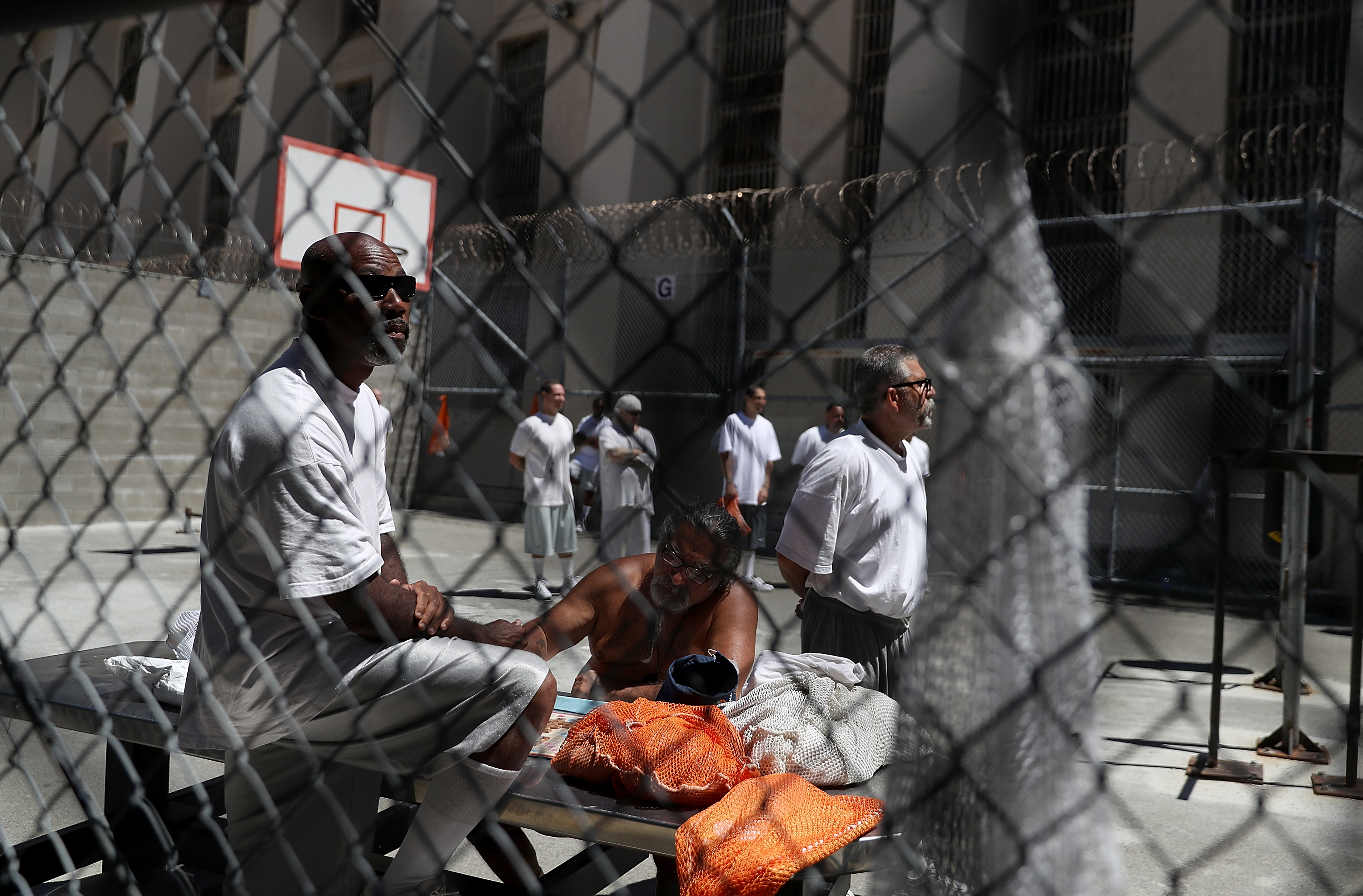California’s Proposition 36, a ballot measure that calls for tougher penalties on some repeat offenders, could increase the state’s prison population, the nonpartisan Legislative Analyst’s Office said in a Sept. 10 report.
Voters in November will decide on the measure, which targets certain drug and theft offenses while offering mental health and addiction programs meant to address root causes of crime.
Introduced to reform Proposition 47—passed by voters in 2014 to reduce prison populations by changing some drug and theft crimes from felonies to misdemeanors—Prop. 36 would undo some punishment reductions and allow judicial discretion to charge repeat offenders with felonies carrying sentences of up to three years.
Analysts concluded that state prison populations could increase because the proposition would require those convicted of so-called hard drugs—including fentanyl, heroin, cocaine, and methamphetamine—to serve their sentences in state prison.
Existing law allows for county jail sentences, depending on the individual’s criminal record.
The number of inmates incarcerated statewide—currently about 90,000—could increase by a few thousand people, analysts wrote in the report.
Analysts also noted a change to court processes for some drug crimes outlined in Prop. 36. Repeat offenders charged with possession of hard drugs could be charged with felonies that could be erased if the individual completes drug treatment programs—with those failing to follow treatment mandates facing up to three years in prison.
The proposition also includes a warning for those caught selling or providing hard drugs to others that if people die from ingesting the drugs they’re given, the distributor could face murder charges—which could also lead to increased prison sentences, according to the report.
“This could make it more likely for them to be convicted of murder,” the report said.
Changes to incarceration mandates and longer sentences could increase the state’s criminal justice costs, “likely ranging from several tens of millions of dollars to the low hundreds of millions of dollars annually,” according to analysts.
As felonies take more time to resolve in court, workloads and costs would increase, and treatment-mandated felonies would also lead to higher administrative costs, the report found.
Local governments could also see increases in criminal justice expenditures, analysts said. While some county jail and community supervision populations would decrease, some repeat offenders would serve longer sentences or have lengthier probation periods, and local inmate populations—currently about 250,000—are forecast to increase by a few thousand statewide, according to the report.
Probation and behavioral health departments could also see increased workloads for some counties, which would increase costs by tens of millions of dollars statewide, the analysts said.
Supporters of Prop. 36 include state legislators on both sides of the aisle, law enforcement officials, district attorneys, and retailers like Target, Home Depot, and Walmart.
Some proponents said jail populations will not increase because offenders can choose treatment programs—which they suggest will help rehabilitate individuals and reduce future criminal acts.
“Any defendant who chooses treatment will serve no jail time and will have their records expunged after successfully completing treatment—helping provide accountability to incentivize treatment while avoiding incarceration,” the Yes on 36 Campaign said in a fact sheet.
They also said it is difficult to project true long-term costs of Prop. 36 and said some investment is needed to reduce crimes committed by repeat offenders, which hurt businesses and can cause them to flee.
“Those estimated costs are even likely an overestimate,” the fact sheet reads. “A disproportionate amount of current public safety issues stem from a small number of repeat offenders who are responsible for the vast majority of crimes.”
Supporters also said the potential costs to implement the reform are small compared with the state’s $300 billion budget.
While Prop. 47 required the state to distribute money saved from reduced incarceration costs—which totaled about $95 million last year—on programs meant to address root causes of crime, including mental health and drug treatment, victim services, and school truancy and dropout prevention, Prop. 36 would reduce the amount of money directed, analysts wrote in the report.
Supporters said that the proposition would use the programs already established by the state through Proposition 1—passed by voters this year and approved a $6.4 billion bond issue to build mental health facilities and restructure the state’s mental health system.
Gov. Gavin Newsom, who campaigned for the passage of Prop.1 and opposes Prop. 36, said the bond was never intended to cover the costs associated with the new ballot measure.
“It wasn’t designed over the course of years with [Prop. 36] in mind,” he said in a press conference Sept. 4 on a different topic. “That’s money we won’t have for other priorities in this state.”
The governor, who prefers a more moderate reform, also said Prop. 36 is calling for a return to the War on Drugs policies of prior decades.
“It’s about mass incarceration ... and it would increase costs to taxpayers,” Newsom said. “And it’s an initiative that can’t be reformed unless we go back to the voters.”
One law enforcement expert supporting the measure said revenue streams at state and local levels can fund the treatment options included in Prop. 36 and countered the governor’s perspective about the impact of the proposition.
“This isn’t about mass incarceration, it’s about mass treatment,” Anne Marie Schubert, former Sacramento district attorney, told The Epoch Times. “This ballot measure was carefully and compassionately constructed to address the issues impacting Californians.”
Some Democrat state lawmakers said the measure is tailored to address the root causes of criminal activity while protecting the rights of all in the Golden State.
“Proposition 36 is crucial for ensuring a more just and effective criminal justice system,” Assemblywoman Blanca Pacheco said in an Aug. 12 press release issued by the Yes on 36 campaign. “It’s time to protect businesses from smash-and-grab retail crimes and prioritize rehabilitation over punishment by passing Proposition 36–a compassionate and comprehensive solution.”
A Democrat lawmaker in the Assembly said she is proud to have been one of the first to back the measure and said a background in medicine helped her see the need for change.
“As a family doctor and addiction specialist who has seen so many lives lost due to illegal drugs hitting our streets, it’s clear that the status quo is not working,“ Assemblywoman Jasmeet Baines said in the press release. ”That’s why it is crucial that we pass this measure so that communities like Kern and others across the state have the tools they need to ensure accountability for those whose actions have destroyed innocent lives.”
State Sen. Tom Umberg, a former drug policy advisor to President Bill Clinton also voiced his support.
“This initiative addresses the devastating impact of homelessness, the fentanyl epidemic, and retail theft that are wreaking havoc on our communities and small businesses,” Umberg said in the press release.














